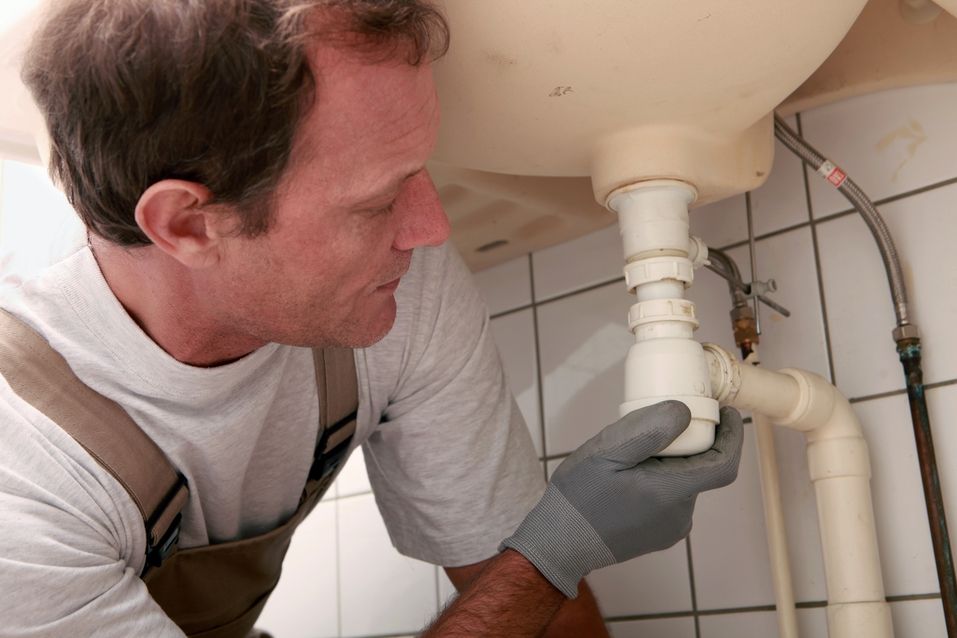Effective drainage is fundamental to the proper functioning of your home’s plumbing system. The inconvenience of clogged drains, from slow water drainage to foul odors and potential plumbing emergencies, underscores the importance of preventive measures. This article provides an in-depth guide on keeping your drains clog-free, offering practical tips and solutions for a well-maintained plumbing system.
Mindful Disposal Practices
The cornerstone of preventing drain clogs lies in conscientious waste disposal. Avoid the temptation to flush non-biodegradable items, grease, or large food particles down the drain.
Invest in a compost bin for organic waste and use the trash for non-dissolvable materials. By adopting mindful disposal practices, you significantly reduce the risk of clogs.
Regular Hot Water Flushing
A simple yet effective method for preventing clogs is the periodic flushing of drains with hot water. Hot water helps to dissolve grease and dislodge accumulated debris, preventing the formation of stubborn clogs.
Incorporate this practice into your routine for both kitchen and bathroom sinks to maintain free-flowing pipes.
Mesh Screens for Drain Protection
Installing mesh screens over drains is a cost-effective and efficient way to catch hair, soap residue, and other debris before they enter the plumbing system.
These screens are easily removable and can be cleaned regularly, preventing the need for more intensive drain cleaning later on.
Routine Drain Cleaning
A proactive approach to maintaining clog-free drains involves regular drain cleaning. Create a natural cleaning solution using a cup of baking soda followed by a cup of vinegar.
Let the mixture sit for at least 30 minutes before flushing it away with hot water. This process breaks down organic material and prevents the accumulation of debris that leads to clogs.
Responsible Chemical Use
While the allure of chemical drain cleaners may be strong, it’s essential to consider their potential drawbacks. Harsh chemicals can damage pipes and have adverse environmental effects.
Opt for eco-friendly alternatives or seek professional assistance for persistent clogs, ensuring both the health of your plumbing and the environment.
Tree Root Prevention
The infiltration of tree roots into sewer lines is a common cause of clogs. To prevent this, strategically plant trees away from plumbing lines and regularly inspect and trim roots that may pose a threat.
This proactive measure can save you from extensive plumbing repairs in the long run.
Regular Professional Inspections
Scheduling regular inspections by a professional plumber is crucial for identifying potential issues before they become serious problems.
Professionals can detect early signs of wear, leaks, or blockages, allowing for timely intervention and the maintenance of a clog-free plumbing system.
FAQs:
Q1: Can I use boiling water to clear clogs?
A1: Boiling water is effective for minor clogs caused by grease or soap residue. However, be cautious with PVC pipes, as hot water can potentially damage them over time.
Q2: How often should I clean my drains?
A2: Perform routine drain cleaning using natural methods at least once a month. For professional inspections, it’s advisable to schedule them annually to catch potential issues early on.
Q3: Are chemical drain cleaners safe?
A3: Chemical drain cleaners can be harsh on pipes and the environment. Consider using eco-friendly alternatives or consult a professional plumber for safer and more sustainable options.
Q4: Can I flush wet wipes down the toilet?
A4: No, wet wipes can cause serious clogs. Dispose of them in the trash to prevent plumbing issues and potential damage to sewer systems.
Q5: What signs indicate a clogged drain?
A5: Slow drainage, foul odors, and unusual sounds are common signs of a clogged drain. Address these issues promptly to prevent further damage and costly repairs.
Q6: How can I prevent hair clogs in the shower drain?
A6: Utilize a mesh screen or install a hair catcher in the shower drain to trap hair before it enters the plumbing. Regular cleaning of these devices ensures optimal performance.
Q7: Are DIY drain cleaning solutions effective?
A7: Yes, DIY solutions like baking soda and vinegar can be effective for minor clogs. However, for persistent issues, seek professional assistance to ensure a thorough and lasting solution.
Conclusion
Incorporating these preventative measures into your household routine can significantly reduce the risk of drain clogs, providing you with a well-functioning plumbing system and peace of mind. Regular maintenance, coupled with mindful disposal practices and professional inspections, ensures your drains remain clog-free, saving you from the inconvenience and expense associated with plumbing issues. By adopting these habits, you contribute to the longevity of your plumbing system and the overall sustainability of your home.

A group of home improvement enthusiasts and bathroom design experts, combines in-depth knowledge and a shared passion to deliver engaging, informative content that guides readers through the world of bathroom innovation and style.

Leave a Reply